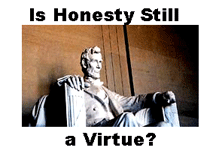October 18, 2006 –
 In recent months, two prominent analysts have been fired (well one resigned, but it’s easy to read between the lines there). According to biotechnology analyst Matt Murray of the American investment bank Rodman & Renshaw, he was fired after wanting to lower the rating of client Halozyme Therapeutics despite the objections of the firm (Source: the New York Post, October, 2006). In Hong Kong, Morgan Stanley’s chief economist and star analyst Andy Xie, was allegedly fired because of an internal memo that he scripted that was leaked to the public, in which he upset the firm with his critcism of Singapore officials. In the memo, Xie spoke disparagingly of Singapore and stated, “Actually, Singapore’s success came mainly from being the money laundering center for corrupt Indonesian businessmen and government officials. Indonesia has no money. So Singapore isn’t doing well. To sustain its economy, Singapore is building casinos to attract corrupt money from China.” (Source: Bloomberg). But Xie wasn’t the only one that was let go. According to the Greater China News, Morgan Stanley amazingly also fired two bankers that merely distributed Xie’s memo.
In recent months, two prominent analysts have been fired (well one resigned, but it’s easy to read between the lines there). According to biotechnology analyst Matt Murray of the American investment bank Rodman & Renshaw, he was fired after wanting to lower the rating of client Halozyme Therapeutics despite the objections of the firm (Source: the New York Post, October, 2006). In Hong Kong, Morgan Stanley’s chief economist and star analyst Andy Xie, was allegedly fired because of an internal memo that he scripted that was leaked to the public, in which he upset the firm with his critcism of Singapore officials. In the memo, Xie spoke disparagingly of Singapore and stated, “Actually, Singapore’s success came mainly from being the money laundering center for corrupt Indonesian businessmen and government officials. Indonesia has no money. So Singapore isn’t doing well. To sustain its economy, Singapore is building casinos to attract corrupt money from China.” (Source: Bloomberg). But Xie wasn’t the only one that was let go. According to the Greater China News, Morgan Stanley amazingly also fired two bankers that merely distributed Xie’s memo.
The above stories reminded me of Chung Wu, a Houston based financial consultant at UBS Paine Webber, that sent an email to his clients warning them of liquidity problems he discovered at Enron and advising them to sell Enron stock. Enron management in turn, responded harshly to UBS PaineWebber executives, and sent the Houston branch office manager a note stating: “Please handle this situation. This is extremely disturbing to me.” Within three hours, Chung Wu was fired.
According to a filing with the National Association of Securities Dealers, Mr. Wu wrote: “Enron management was not pleased and due to the employee stock option relationship UBS PaineWebber has with them, the pressure came from my corporate office to dismiss me.” UBS claimed they fired Wu over an infraction over email protocol (Source: the Guardian, March, 2002) even though they immediately issued a retractment of Wu’s email
to their clients and stated that Enron was “likely heading higher than lower from here on out.” A few months later, the people that held onto Enron stock lost everything as the stock became worthless and Enron declared bankruptcy (Source: The New York Times, March, 2002).
I have stated multiple times that analysts and financial consultants at major investment firms are under extreme pressure to hold the party line and not to upset corporate relations even if their honesty may save clients hundreds of thousands or even millions of dollars through the revelation of something they discover by digging deep down the rabbit hole. Andy Xie, as a chief economist in Asia, surely had a salary of at least several hundred thousand dollars a year (if not more) and allegedly, solely for his assessment and opinion of an economic situation, was let go.
Many of the topics I write about here, I am only at liberty to do so because I no longer work for large investment firms. If I was still there, I probably would have to write under a pseudonym for fear of some type of reprisal or backlash. But the greater, much more significant question to ask is, “How did greed become such a huge monster that when analysts and financial consultants speak a truth that serves to protect the interests of individual clients of the firm, their reward is a pink slip?” For those honest analysts and financial consultants that still work at large investment firms, after reading about the fates of Xie, Wu, and Murray (and you can be sure that all of them know as word of cases such as the aforementioned ones within the industry travels like wildfire) –
Do you really think that any of them will ever step forward now to warn their clients of impending disasters?